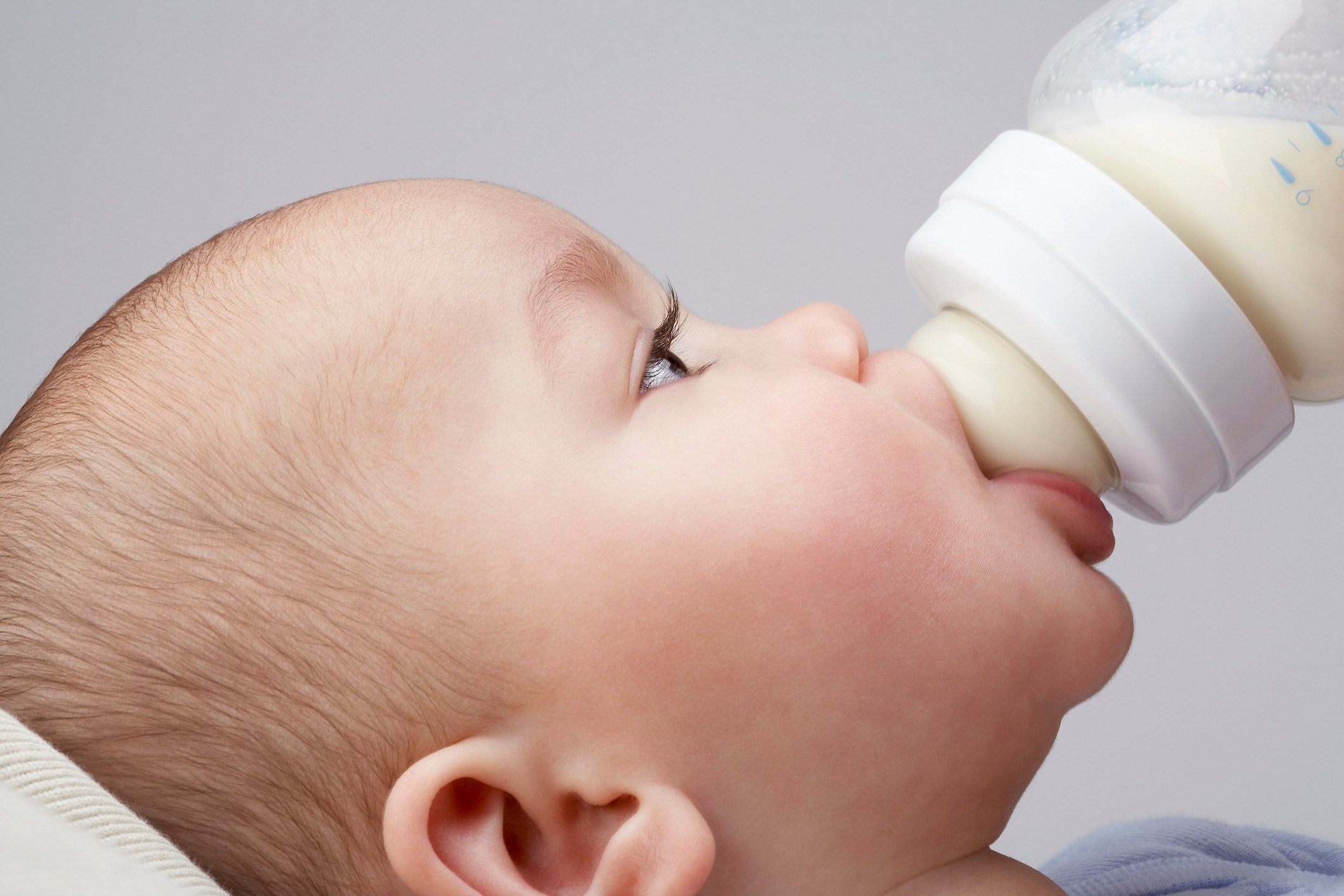When your little one is born, life can suddenly feel like it constantly revolves around their feeding schedule. Questions may be flooding your mind, such as, is my baby back to their birth weight, is my baby eating enough, are they still hungry? But have you ever questioned whether you are overfeeding your baby? The worry and questions can be endless. As moms, we want to do the best for our babies, ensuring they grow strong and healthy.
Although overfeeding is not a common topic of conversation, it should be something parents are aware of. Feeding your baby too much can cause discomfort in the short term, and it can expose your infant to a higher risk of health concerns later in life.
Why is Overfeeding My Baby Concerning?
Overfeeding in infancy is not regularly discussed among parents or pediatricians. Many parents are unaware of the lasting effects overfeeding can have on their children. Whether breastfeeding or bottle feeding, knowing your child’s hunger and feeding cues are crucial to setting your little one up for success. Overfeeding occasionally happens, and it can cause some short-term discomfort, but repetitively overfeeding your little one is where the concern arises.
Sometimes your little one may have a feeding session where they ate more than needed. This irregular overfeeding may lead to short-term symptoms that can cause uneasiness for your baby. These symptoms can include spitting up, increased gas, and abdominal discomfort. As a result, you may have a fussy baby.5
Regular Overfeeding May Lead to Obesity
Overfeeding in infancy becomes more of a concern when it happens regularly. As a result of obesity being more prevalent in today’s world, more research is being done on how to prevent obesity, even from infancy.1 Studies have focused on overfeeding babies, and the findings may shock you.
Studies have shown that rapid weight gain in infancy is commonly associated with being overweight in childhood and adulthood.2 As we know, additional risks arise for health conditions by being overweight. During childhood, the risk rises for developing asthma, type II diabetes mellitus, heart disease, sleep apnea, and even problems with bones and joints. As adulthood approaches, the risks continue to increase. Obesity in adulthood leads to higher chances of having a stroke, suffering from mental illness, and even developing cancer.8
Childhood obesity is linked to many factors such as genetics, underlying health conditions, sleep routines, eating habits, and activity levels, not just overfeeding your little one.8 During the early months of life, a pediatrician can impact a child’s future health by talking to parents early about growth, nutrition, and healthy habits. Educating families on healthy behaviors and creating strategies early can be a tremendous front-line intervention to prevent childhood obesity.2
It is our job as parents to set an example. Show your children how important it is to make healthy choices throughout the day. Be the model, exercise in front of them, make healthy meals, and always encourage playtime!4
When Your Baby is Overfed
Every baby is different. You will soon get to know your little one so well that you can pick up on their subtle, or not-so-subtle, cues to let you know when they are full. These signals can help you understand your baby is finished feeding and or indicate your baby may have been overfed.7, 5
Common Signs Baby is Full
- Unlatching from the breast or pulling away from the bottle
- Slowing down their suck
- Falling asleep
- Being distracted from feeding
- Not accepting the bottle or breast, turning head
- Frequent pauses in sucking
Signs Baby May Have Been Fed Too Much
- Spitting up
- Increased gas
- Crying after feeding
Overfeeding your baby can lead to increased gas production, which can cause abdominal discomfort. This stress on your infant can be very uncomfortable and result in crying.5
How to Avoid Overfeeding Your Baby
It is overwhelming to hear about the impact feeding your baby in infancy can have on their life. Let’s discuss some points to keep in mind when deciding on how to feed your little one and tips on doing so to set them up for a healthy future.
Responsive Feeding
Whether breastfeeding or bottle feeding, the most important way to set your little one up for a successful feeding is to watch for and read their hunger and feeding cues. The American Academy of Pediatrics (AAP) refers to this as responsive feeding.9 Responsive feeding is the first step in helping your child develop healthy eating habits. With responsive feeding, your baby is in control. Your baby uses subtle cues to let you know they are hungry. These hunger cues include moving hands to the mouth, rooting, and clenching fingers over the stomach and chest area.
Once you read these hunger cues, you provide the food (breastmilk or formula), and the baby can decide how much volume to take to meet their current needs. Baby will then let you know they are finished with some more cues, as discussed above. Some of these cues may include detaching from breast or bottle, turning head away and refusing food, getting distracted, and pauses in sucking. Once “I’m full” cues are identified, listen to your baby and stop feeding them. Do not try to force them to take more than desired. You are setting your baby up for long-term healthy eating habits by working on responsive feeding.7
Breastfeeding
Choosing to breastfeed your child is one of the best ways to support your little one’s health from birth. Not only does it offer protection against diseases, but research has also linked exclusive breastfeeding as an early way to protect your child from future obesity. Where is the link between breastfeeding and obesity? Well, with breastfeeding, it’s the infant who is in control. The baby is in control and can decide how much milk they are taking in and the rate at which they eat.6 This ability to self-regulate feedings ultimately also controls the amount of milk mom is producing to meet their needs.3
Bottle Formula Feeding
Breastfeeding is not always an option, but as we know, a fed baby is best. Studies show that bottle feeding is associated with overfeeding more commonly than breastfeeding. Knowing this, it is essential to understand how to use a bottle to feed your baby correctly and prepare formula.
A recent study found that the way a bottle is prepared could be linked to overfeeding a baby.6 It is easy to add more formula than needed without knowing it. Make sure to take a moment to measure the precise amount of formula your little one needs before giving them a bottle.6 Another point to note about bottle feeding is that just as reading feeding cues is important with breastfeeding, it is also essential with bottle feeding. Be on the lookout to recognize signs that your little one is full and finished eating.
Solid Foods
The AAP recommends introducing solid foods to your baby starting at 4 to 6 months. Before solids, your milk provides all the nutrients your little one needs. A research study also showed a relationship between introducing solids before four months and being overweight in childhood.2
As parents, all we want to do is protect our children and set them up for success. By being in tune with and responsive to your little one’s subtle cues, you can create a trusting feeding relationship that will set them up for healthy eating habits. If you feel overfeeding may be a concern for your child, speak with your pediatrician to discuss and ask questions.

 PARENTING TIPS
PARENTING TIPS PREGNANCY
PREGNANCY BABY CARE
BABY CARE TODDLERS
TODDLERS TEENS
TEENS HEALTH CARE
HEALTH CARE ACTIVITIES & CRAFTS
ACTIVITIES & CRAFTS


